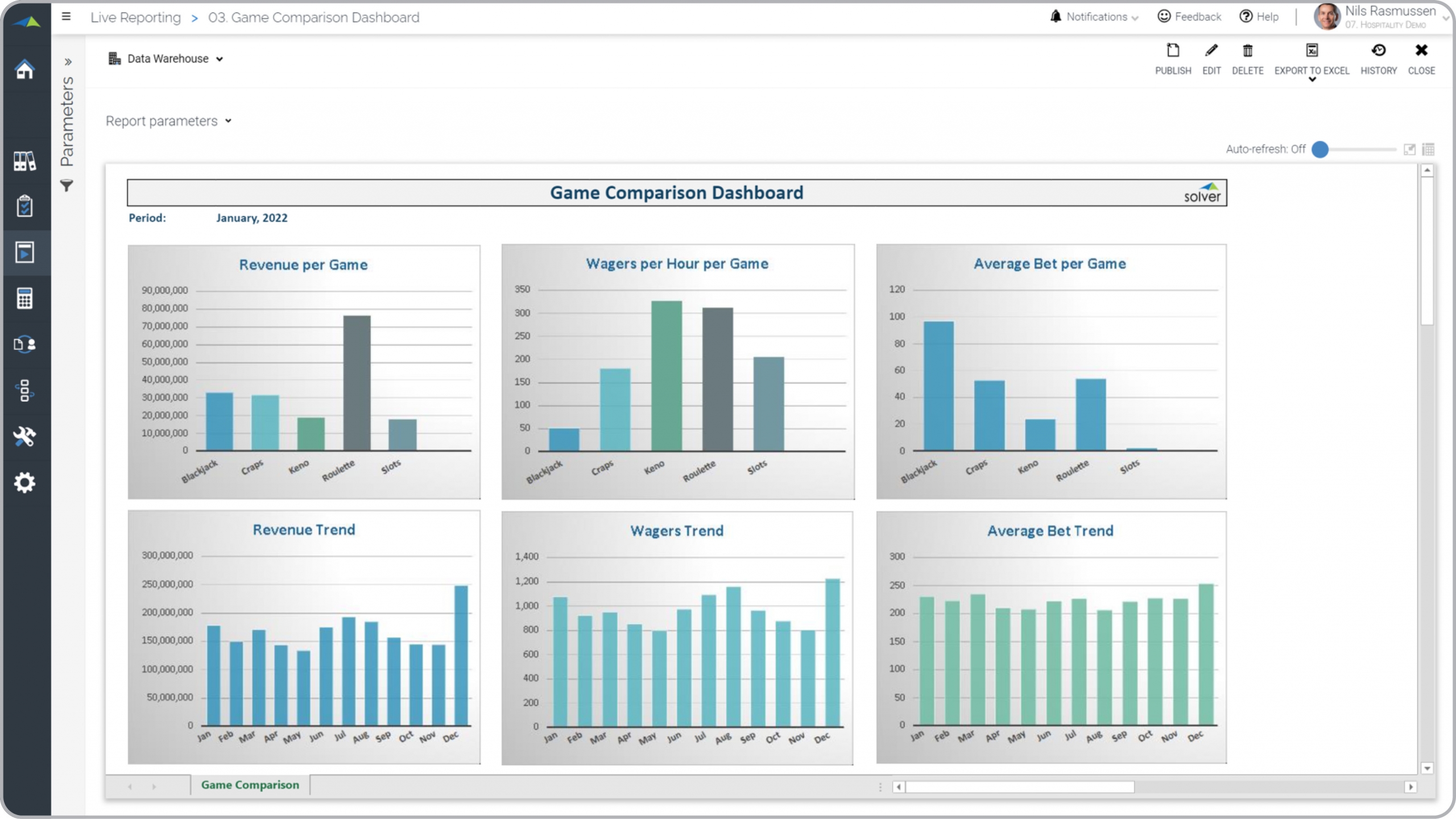Written by Nils R. | Aug 4, 2021 7:00:00 AM
What is
a
Casino Game Comparison Dashboard
? Game Comparison Dashboards are considered operational analysis tools and are used by casino managers and financial analysts to benchmark game metrics. Some of the main functionality in this type of dashboard is that it provides six different perspectives, including: 1) Revenue per game, 2) Monthly revenue trend, 3) Wagers per hour per game, 4) Monthly wagers trend, 5) Average bet per game, and 6) Monthly trend in average bets. You find an example of this type of dashboard below.
Purpose of
Casino Game Comparison Dashboards Hospitality companies use Casino Game Comparison Dashboards to enable performance benchmarking across the company's game offerings. When used as part of good business practices in casino operations departments, a company can improve its game services analysis and revenue optimization, and it can reduce the chances that any individual game offering under- or over-performs without receiving proper analysis.
Example of a
Casino Game Comparison Dashboard Here is an example of a Game Comparison Dashboard with monthly trend analysis and benchmarking of revenues, average wagers and average bets. [caption id="" align="alignnone" width="2560"]


- Native ERP report writers and query tools
- Spreadsheets (for example Microsoft Excel)
- Corporate Performance Management (CPM) tools (for example Solver)
- Dashboards (for example Microsoft Power BI and Tableau)
- View 100’s of reporting, consolidations, planning, budgeting, forecasting and dashboard examples here
- View a Hospitality industry white paper and other industry-specific information here
- See how reports are designed in a modern report writer using a cloud-connected Excel add-in writer
- Discover how the Solver CPM solution delivers financial and operational reporting
- Discover how the Solver CPM solution delivers planning, budgeting and forecasting
- Watch demo videos of reporting, planning and dashboards
